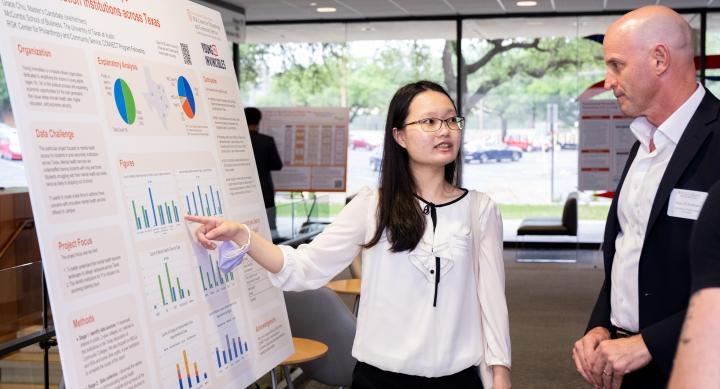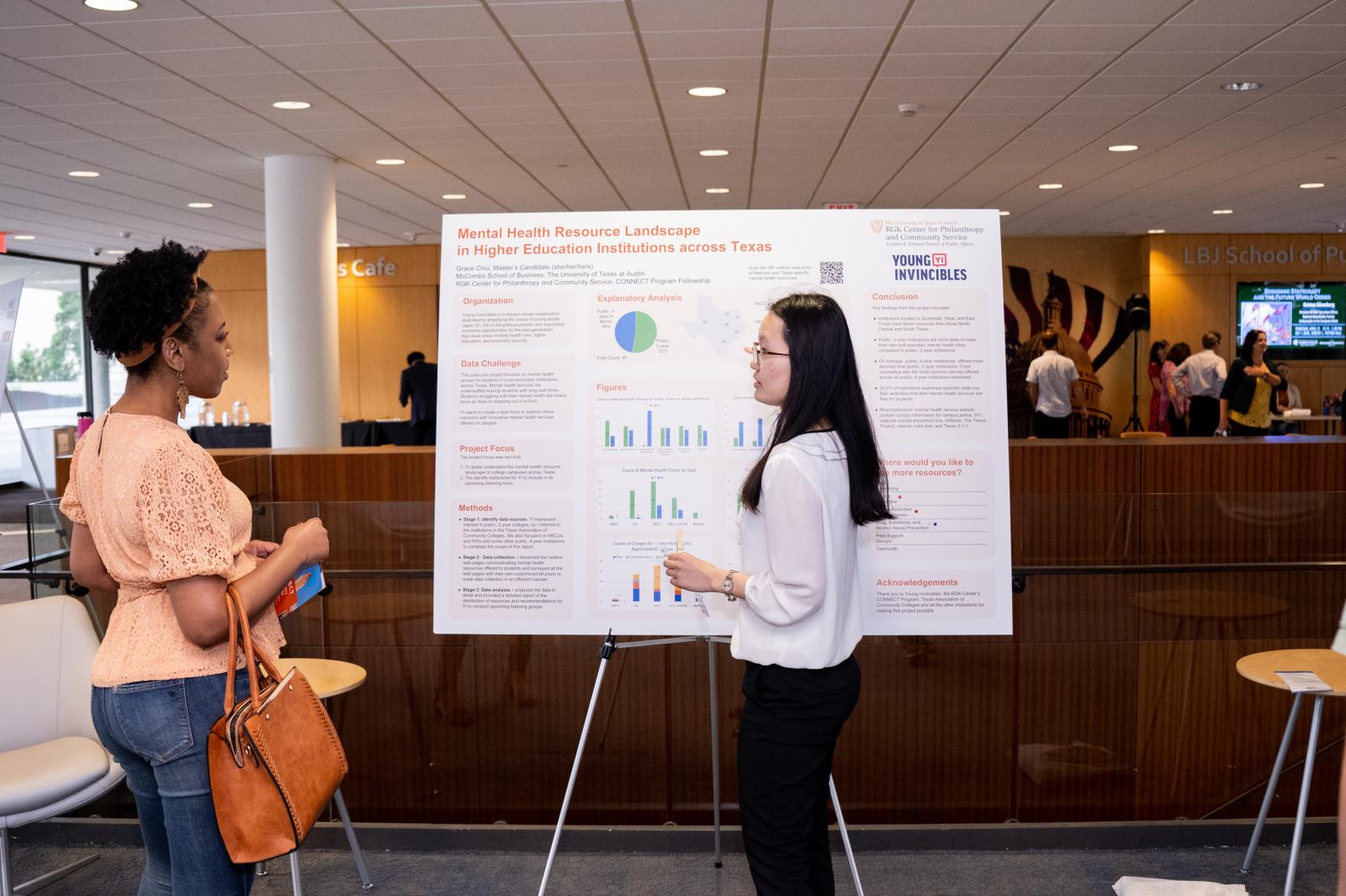
Last spring semester, CONNECT fellow Grace Chiu worked with Young Invincibles to assess the types of mental health services offered at colleges and universities across Texas. The data Grace gathered and analyzed will help Young Invincibles provide policy recommendations to improve students’ access to mental health services in the next legislative session.
“I’m thankful to have CONNECT and YI to be able to work on this project where I could bring my data skills and help the community,” said Chiu, who is a student in the McCombs School of Business.
Young Invincibles (YI) is an organization committed to expanding economic opportunity for young adults ages 18-34 and elevating the voices of young people, particularly those from low-income and historically underrepresented communities, in policy discussions.
Aurora Harris, Southern Regional Director of YI, describes the “profound set of experiences” society has witnessed since 2020, including a pandemic, economic devastation, school closures, race-based violence and protests and the effect they have had on mental health.
“These occurrences have magnified mental health issues, including anxiety and depression, and worsened existing gaps in access to health services,” Harris said. “We wanted to work with students and universities to help us all rise to the moment in a different and urgent way.”
After conducting listening sessions with college mental health leaders and students, YI determined the urgent need for more and better mental health resources on college campuses. They ran a mental health campaign for SB 1521 (later amended onto SB 36) to advocate for a mental health task force for higher education institutions, which was presented at the 87th Legislative Session in 2021 but ultimately denied.

Poster designed by Young Invincibles to promote their campaign for SB 1512.
"We are heartbroken by this decision, but remain firm in our commitment to this campaign,” Harris said, explaining the importance of conducting an initial landscape analysis to better prepare for the next session.
Through the CONNECT program, Harris and the YI team worked with Chiu to assess the landscape of mental health resources from 80 public institutions across the state, including community colleges, Historically Black Colleges (HBCU) and Hispanic Serving Institutions (HSI). Chiu collected data about mental health services from institutions’ websites and demographic data from the National Center for Educational Statistics.
After gathering all of the data points and categorizing based on institution size and location, Chiu produced a report with her findings. Key takeaways are listed below:
TACC (Texas Association of Community Colleges) institutions and institutions belonging to both TACC and HSI lack mental health clinic resources offered on campus compared to HBCUs and HSI-only institutions
Smaller schools tend to not have as many resources as larger schools
Schools in the Southeast, West, and East have fewer resources compared to North, Central, and South
All public, 4-year or above institutions in the study have their own self-operated mental health clinics, while 26 out of 42 public, 2-year institutions have their own mental health clinics
Crisis counseling is the most common resource provided by clinics in public, 4-year or above institutions
In April 2022, Chiu presented her research to attendees at the CONNECT Community Showcase, where she included an interactive piece of her presentation allowing attendees to place a sticker next to the type/s of mental health services they would fund at higher education institutions.
“Most people working in fields relating to mental health were struggling with which one to pick,” Chiu said, though crisis counseling and peer support groups would eventually rise to the top. “They know how important all the services are and wanted to vote for all of them!”
Chiu went on to win the Community Choice award for her poster presentation that evening, as voted by the attendees of the event.

Grace Chiu reviews her poster with Leadership Austin's Courtney Bailey at the CONNECT Community Showcase.
“I learned a lot and definitely enjoyed working on this project,” Chiu said. “It’s great to have YI who cares about this issue and that my work can empower them to make it more accessible to everyone."
Harris and the YI team plan to use the data gathered in this project to bridge the gap between campus health services and health systems change, continuing their work of developing passionate student leaders who can mobilize their peers and stakeholders on issues of mental health.
“While Texas’ campuses deserve more state investment to expand services generally, YI will use this data to continue to provide low-cost/nonfiscal note policy recommendations lawmakers can implement to help strengthen on-campus services, decrease stigma, and improve awareness of available care,” said Harris.
Next steps to the project include conducting focus groups to gather qualitative research to accompany the data Chiu gathered during this project.